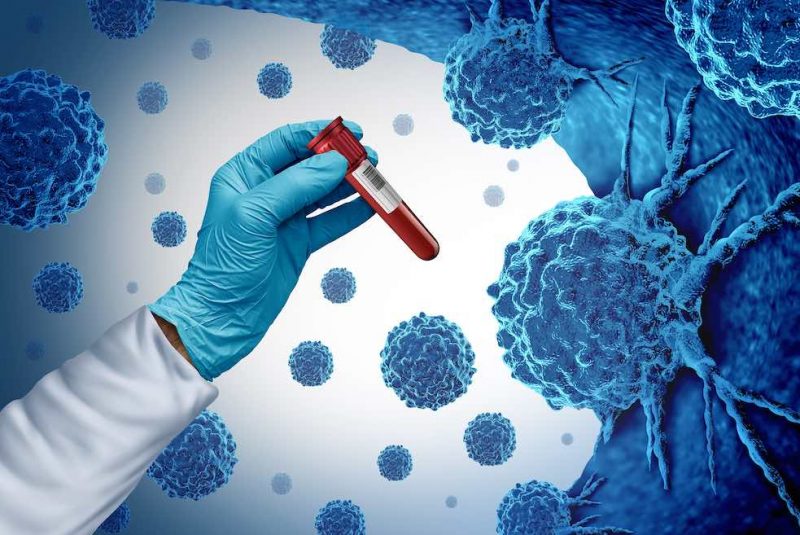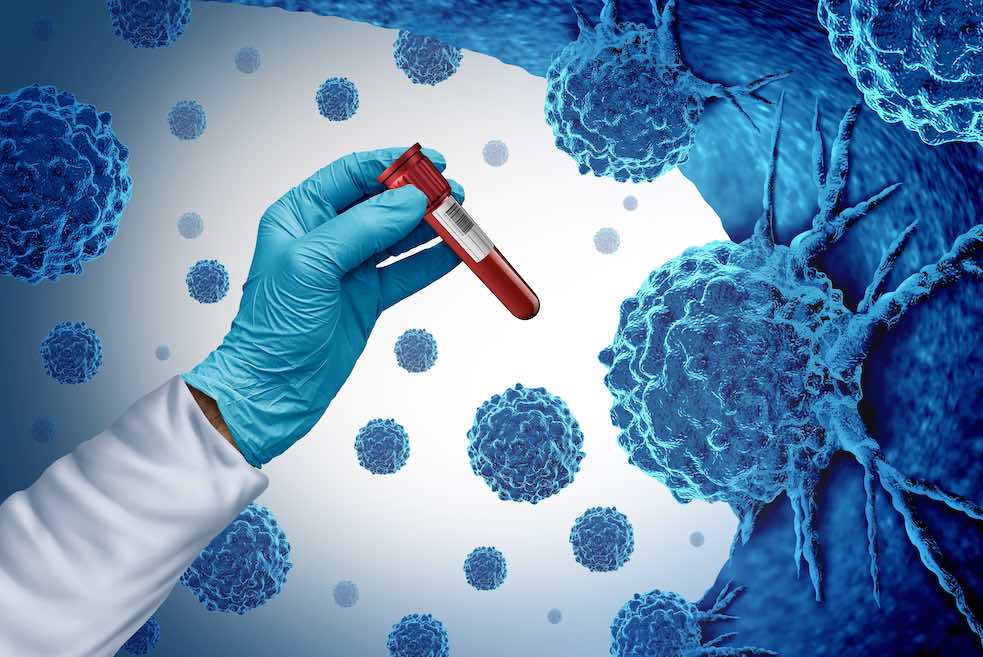A multi-cancer early detection test showed a positive predictive accuracy of 75% and negative predictive accuracy of 98% in a population referred for diagnostic follow-up after presenting to primary care with symptoms of cancer. The SYMPLIFY study, abstract 1501, presented in an oral abstract session at the ASCO 2023 Annual Meeting, also found that the test was 85% accurate in detecting the source of cancer.
“The study showed that large-scale rapid studies of MCED [multi-cancer early detection] tests in symptomatic patients are feasible in routine clinical practice,” said Brian Nicholson, the co-investigator from University of Oxford, UK. “The high overall specificity and positive predictive values indicate that, if positive, the current MCED test could be used to confirm that referred patients should be investigated for cancer.”
Mark Middelton, the co-investigator also from University of Oxford, added, “The test was 85% accurate in detecting the source of the cancer – and that can be really helpful because so many times it is not immediately obvious when you have got the patient in front of you what test is needed to see whether their symptoms are down to cancer.”
Initially designed for use in asymptomatic screening populations, the MCED Galleri test uses next-generation sequencing and machine-learning algorithms to isolate cell-free DNA and analyse methylation patterns to detect if a cancer signal is present. The methylation patterns represent ‘fingerprints’ that are considered characteristic of 50 different types of cancer. If the signal is detected, the test, developed by GRAIL, can go on to predict the tissue or organ where the cancer signal originated from, to help guide further diagnostic tests. The approach is considered particularly beneficial for non-specific symptoms, like unexpected weight loss, that could point to a number of different cancer types, resulting in the need for a range of investigations that can lead to delays in cancer diagnosis.
The PATHFINDER study, presented at the 2022 ESMO Congress in Paris, demonstrated that adding the Galleri test to standard of care screening in adults with no symptoms or suspicion of cancer more than doubled the number of cancers detected compared with standard screening alone. Of 35 confirmed cases, 71% had cancer types that did not have routine cancer screening tests available.
The current SYMPLIFY study was the first to assess the performance of the Galleri test in a population referred for diagnostic follow-up after presenting to primary care with symptoms of cancer. In the prospective observational study, 5,461 individuals from 44 hospitals, who had been referred via one of the UK’s five urgent cancer investigation pathways for symptoms suspicious of cancer, provided a blood sample on the day they attended for standard of care investigations. Cell-free DNA was then isolated and stored from the blood sample until GRAIL’s MCED test was performed in batches, blinded to clinical outcomes. GRAIL’s prediction and cancer signal origin were then compared with the diagnosis obtained through standard of care investigations.
Results showed that the most commonly reported symptoms leading to GP referrals were unexpected weight loss (24.1%), change in bowel habits (22.0%), post-menopausal bleeding (16.0%), rectal bleeding (15.7%), abdominal pain (14.5%), pain (10.6%), difficulty swallowing (8.8%), and anaemia (7.1%).
In the study, 368 (6.7%) of the 5,461 evaluable patients were diagnosed with cancer through standard of care, with the most common diagnoses being colorectal (37.2%), lung (22%), uterine (8.2%), oesophago-gastric (6.0%), and ovarian (3.8%). Results showed that the Galleri test detected a cancer signal in 323 people, 244 of whom were diagnosed with cancer, leading to a positive predictive value of 75.5%, a negative predictive value of 97.6%, and specificity (% testing negative among a group without the disease) of 98.4%. The overall sensitivity (the true-positive rate) of the test was 66.3%, ranging from 24.2% in stage I cancers to 95.3% in stage IV cancers. Sensitivity varied according to cancer site, measuring 49.1% for gynaecological cancers, 68.5% for lower GI tumours, 70.8% for lung tumours, and 80.4% for upper GI tumours.
The potential value of identifying the cancer signal origin is illustrated by the fact that 47% of the cancers diagnosed via the upper GI urgent cancer investigation pathway were not GI cancers. “So, a patient referred to the upper GI pathway who had a prediction of a different cancer site could reduce the number of investigations required to reach that diagnosis and ultimately speed up the diagnostic process for these patients,” said Nicholson.
The study, concluded Nicholson, demonstrated the role for multi-cancer multi-detection tests in diagnosing symptomatic patients. “We have shown that large-scale prospective evaluations can be done in clinical care and at pace. There’s no question that a positive test should lead to further cancer investigation and that the cancer signal of origin could direct those investigations.” However, a negative test result in a referred population, he added, does not appear to push down the risk of cancer far enough to rule out further investigations, apart from the upper GI pathway.
Going forward, said Nicholson, large interventional studies of the Galleri test are required to ascertain the impact on time to diagnosis, stage at diagnosis, the resources used, and the long-term effects on overall survival and mortality.
David Crosby, Head of Prevention and Early Detection Research at Cancer Research UK, commented, “The findings from the study suggest this test could be used to support GPs to make clinical assessments, but much more research is needed in a larger trial to see if it could improve GP assessment and ultimately patient outcomes.”
A second trial currently underway in the UK, the NHS-Galleri trial, is exploring whether the Galleri test finds cancer earlier when combined with standard cancer testing in people without symptoms. The target is to enrol approximately 140,000 subjects, aged 50 to 77, who are being randomised to either a test or the control arm, with participants testing positive referred for standard of care investigations and treatment. If early trial results prove promising, the NHS may decide to offer the test to up to one million people in England as part of a pilot to screen for cancer, alongside national cancer screening programmes.












